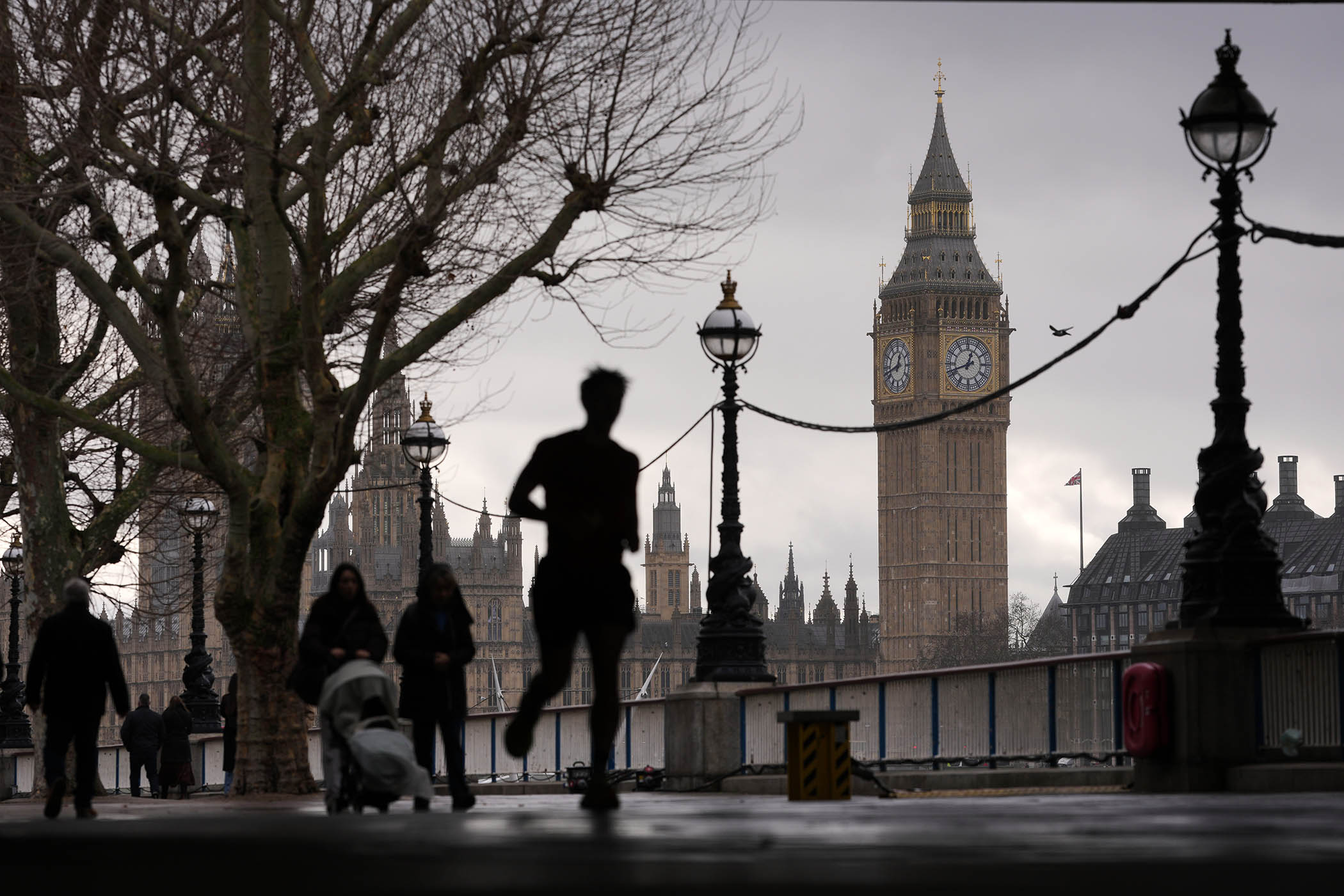The government, reeling from a relentless litany of bad news on asylum seekers, small boats and immigration, has a further challenge that threatens to trump them all. The Office for Budget Responsibility is promising to deliver news this Friday that could force it either to break one of its election commitments on income tax, VAT and national insurance in the budget or hike other taxes to such a degree that they are electorally unpalatable. It’s a Hobson's choice that is transfixing both No 10 and the Treasury.
Productivity may seem nerdish; it is anything but. Nobel economic prize winner Prof Paul Krugman famously captured how economists think of it: “Productivity isn’t everything, but in the long run it’s almost everything.” The OBR’s lowering by 0.3 percentage points of its assessment of Britain’s trend productivity growth as part of its economic forecasts for the budget would normally hardly be front page news. Now the awesome implications are becoming the talking point of Westminster and Whitehall, with Keir Starmer explicitly not ruling out a manifesto-busting increase in income tax at Wednesday’s prime minister’s questions.
The National Institute of Economic and Social Research warned last month that the projected shortfall for 2029/30 against the fiscal rule on debt could be as high at £41bn. It is a number that seemed outlandishly high at the time, but was based on lower forecasts for economic growth, whose general downgrading and consequent impact on the magnitude of the deficit the OBR now looks set to confirm. Opinion is hardening that income tax will have to be increased by 2p in the pound, perhaps compensated for those in work by a compensating cut in national insurance contributions, to leave working people’s disposable income unchanged, so partially keeping to the spirit of the manifesto.
The national insurance reduction will sweeten the bitter pill of its being extended to rental income, limited partnerships and the self-employed which together could close as much as half of the fiscal shortfall. On top, there will have to be increases in property taxation, lifetime gifts, tax-free pension lump sums and more. Unless crafted and sold well, the measures could prove fatal to the Starmer-Rachel Reeves “ticket” – detested by the millions of losers and even those who are protected, mindful that an electoral commitment has been partially broken however it’s dressed up.
Starmer roundly curses the OBR; in the Treasury there is sympathy for the chancellor mixed with schadenfreude
Starmer roundly curses the OBR; in the Treasury there is sympathy for the chancellor mixed with schadenfreude
Why does such an apparently tiny change in an economic assumption have such potentially devastating consequences? Essentially, lower productivity over a period means lower economic growth and lower tax revenues – and bigger projected budget deficit. As a rough rule of thumb, the Institute for Fiscal Studies reckons that every 0.1% off productivity growth will inflate the budget shortfall by £7bn by 2029/30 – the last year of the planning horizon. Other economists think the figure could be higher
At the time of the March budget, the OBR thought it reasonable to plug in 1.25% trend growth as its working assumption for the next five years; now, the Financial Times reports, it plans to lower its projection by about 0.3 percentage points. We can be pretty sure that means a reduction in productivity of 0.25-1%, and a budget deficit that will be at least £17.5bn higher than it otherwise would have been. Starmer roundly curses the OBR; in the Treasury there is sympathy for the chancellor mixed with schadenfreude. She further empowered this monster, outsourcing the Treasury and government’s brain. Now she can live with the consequences.
Britain’s productivity used to grow at about 2% a year, but first the financial crisis and then Brexit, followed by Covid, has devastated its growth. British business and training investment has always been at the bottom of the international league table so that British workers tend to be both underequipped and undertrained with all that means for productivity. The economy’s saving grace has been its openness to trade, helping stimulate competition even on the underequipped and undertrained, and that, greatly helped by EU membership, Britain developed a broad-based service sector economy, becoming the second biggest exporter of services in the world.
Brexit apologists point to the fact that the performance of the French and German economies within the EU has hardly been stellar. That’s not the point. EU membership had conferred on Britain unique advantages that have now been trashed. Our openness to trade has been dramatically reduced, while our service industries no longer have unfettered access to EU markets. We could have been the best in Europe; instead we have to comfort ourselves that others are scarcely doing better. The OBR has been compelled to admit that reality, and lower its projections of trend productivity
On top, Reeves has been advised to double her fiscal margin for error, the so-called “fiscal headroom”, by £10bn to £20bn, to compensate for the now nonexistent savings the aborted welfare reforms would have produced and to find resources both to abolish the two-child limit on child benefits and to cut energy bills. With slower growth the fiscal shortfall quickly climbs towards £40bn, although there could be lower debt service costs and other unexpected revenue boosts that draw some of the sting.
Overall it’s not a happy picture. Trend productivity, it turns out, is not nerdish at all.
Newsletters
Choose the newsletters you want to receive
View more
For information about how The Observer protects your data, read our Privacy Policy
Photograph Adam Vaughan/EPA/Bloomberg via Getty Images



